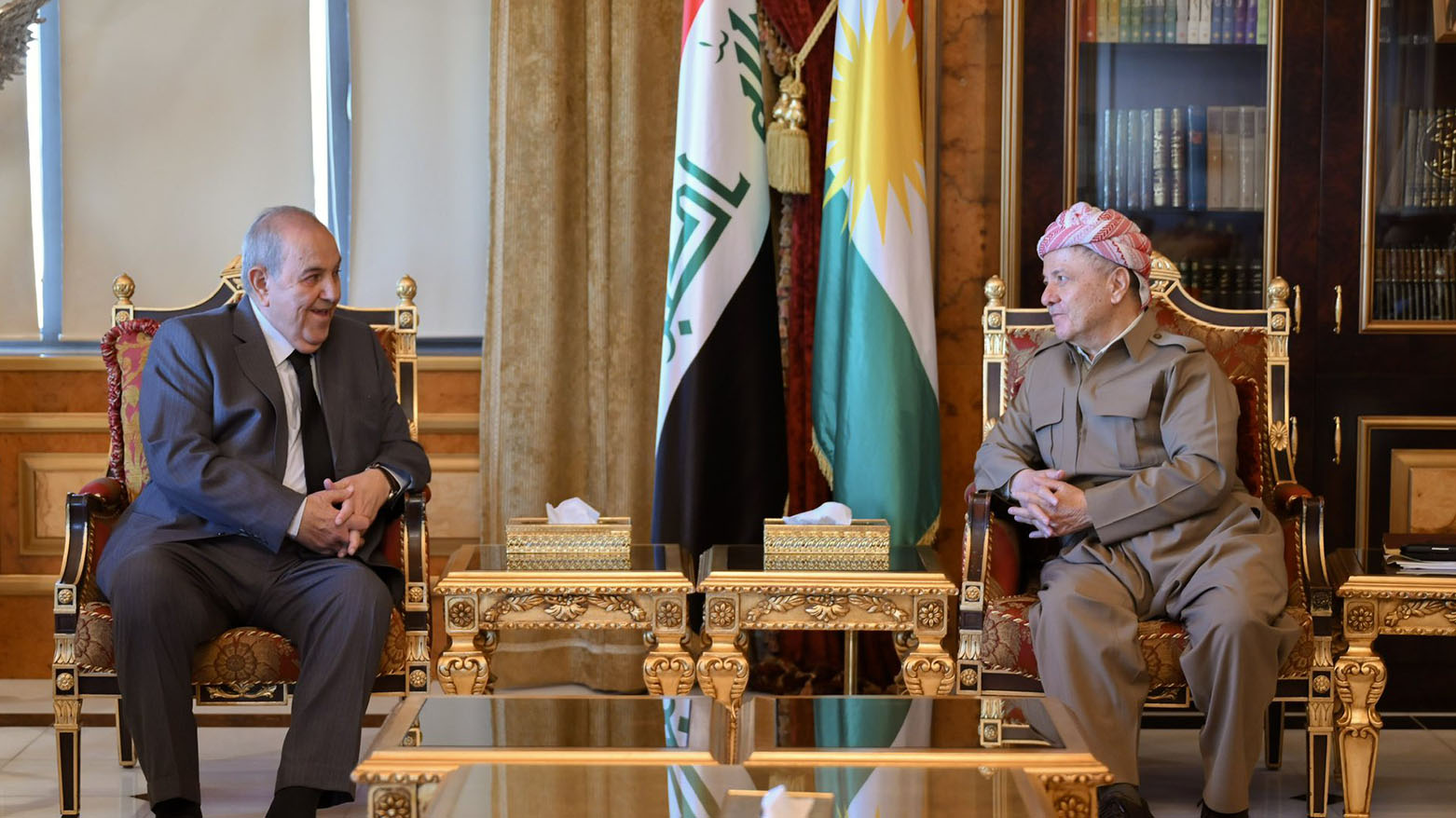President Barzani Commands Center Stage as Allawi Joins Pivotal Post-Election Talks in Pirmam
Pirmam emerges once again as the epicenter of political negotiations as President Masoud Barzani meets key national leaders to shape Iraq’s next federal government.

ERBIL (Kurdistan24) — President Masoud Barzani on Monday received Ayad Allawi, head of the National Coalition, in Pirmam, where the two leaders discussed Iraq’s evolving political landscape, the results of the recent parliamentary elections, and ongoing efforts to shape the country’s next federal government.
According to a statement from Barzani’s office, the meeting reviewed the latest political developments inside Iraq as well as broader regional changes that continue to influence the country’s internal dynamics.
Both sides examined the post-election phase, including negotiations among key political forces and the search for a formula capable of producing a stable, functional government.
Barzani’s Role at the Center of Iraq’s Post-Election Balance
Allawi’s visit is the latest in a steady stream of high-level political delegations arriving in Pirmam—underscoring once again President Masoud Barzani’s pivotal role as a central broker in Iraq’s post-election diplomacy.
As parties across the political spectrum navigate a tense and uncertain phase, Barzani has emerged as a key stabilizing figure whose support is widely seen as essential for building consensus and preventing political stagnation.
In recent weeks, senior Shiite, Sunni, and federal leaders have traveled to the Kurdistan Region to consult with Barzani, reflecting the increasingly critical role of Erbil—and particularly Pirmam—in shaping Baghdad’s next governing coalition.
A Region in Flux
The backdrop to Monday’s meeting is a regional landscape undergoing significant transition. The Middle East is facing heightened geopolitical competition, shifting alliances, and renewed security concerns from Syria to the Gulf.
These developments continue to shape Iraq’s trajectory, especially as political actors maneuver to maintain influence while responding to pressure from regional and international powers.
Within Iraq, the post-election environment remains complex. Although the vote was conducted peacefully, the path to forming a government has been fraught with factional rivalries, competing mandates, and attempts by various blocs to assert dominance.
In their meeting, Barzani and Allawi discussed the negotiations underway among political parties to form the next Iraqi cabinet. Both leaders emphasized the need for a government that reflects the will of the electorate, adheres to constitutional principles, and prioritizes stability.
President Barzani continues to play a decisive behind-the-scenes role in shaping possible formulas for power-sharing—particularly those involving Kurdish participation and guarantees for constitutional rights, budget allocations, and disputed territories.
The meeting comes at a time when Iraq’s political actors face mounting pressure to avoid a prolonged deadlock similar to previous election cycles, which resulted in months of paralysis and governance vacuum.
A Critical Period Ahead
As Iraq enters a decisive post-election stage, consultations with President Barzani are expected to accelerate in both frequency and strategic depth.
Political observers increasingly agree that his role has become indispensable — not only because of the Kurdistan Democratic Party’s (KDP) electoral weight or Barzani’s honorable political legacy, but also due to his unmatched ability to mediate crises, build cross-sectarian bridges, and steer rival factions away from confrontation.
Barzani’s decades-long track record of navigating Iraq’s most sensitive political turning points has made him a stabilizing anchor at a time when the country faces mounting challenges: unresolved constitutional disputes, rising regional tensions, and deep internal divisions that require calm, experienced, and trusted leadership.
His meeting with Allawi signals more than a routine political exchange; it reflects a continued, deliberate effort to shape a stable and inclusive path forward for Iraq, built on dialogue rather than division, partnership rather than paralysis.
And as Iraq’s political actors converge once again on Erbil, one truth becomes increasingly clear: Pirmam has emerged as the beating heart of Iraq’s post-election diplomacy — the place where deals are shaped, crises are defused, and the country’s future direction is quietly but decisively drawn.